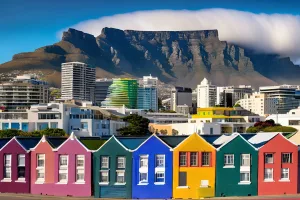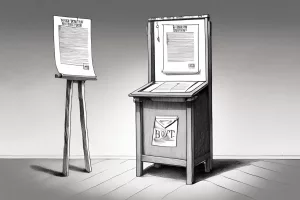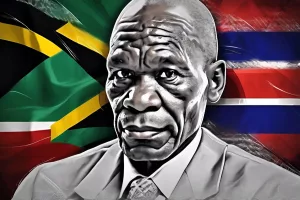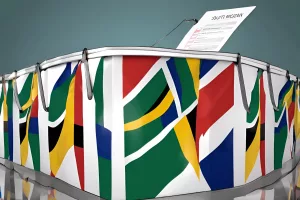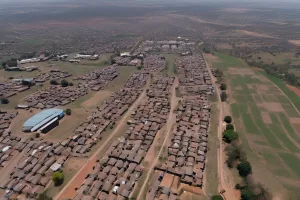South Africa celebrated a democratic milestone with the triumph of President Cyril Ramaphosa and the Independent Electoral Commission’s (IEC) 2024 election results. The electoral process showcased a free, peaceful, and fair expression of the people’s will, with millions of South Africans participating from all corners of the country. The election results reflected the resilience and strength of South Africa’s democracy, and the shared mandate is to construct an inclusive, united, and prosperous nation, prioritizing the people of South Africa.
South African smallscale fishermen are standing up against TotalEnergies’ offshore oil and gas exploration plans amid fears that they will ruin their livelihoods. Led by fisherman Sifiso Ntsunguzi, the community is concerned about the environmental impact of the proposed sites and the potential loss of fish, which is their main source of food and income. Environmental group Green Connection has sued the government over TotalEnergies’ environmental authorisation, and the company’s promises to reach netzero carbon emissions by 2050 are being scrutinised. The conflict highlights the challenges of balancing economic development with environmental preservation.
The City of Cape Town’s Water and Sanitation Directorate is responsible for maintaining the city’s water supply infrastructure. They have announced a planned maintenance operation from June 1 to June 8, 2024, which will affect certain regions and may cause temporary disruptions to water supply. The operation is necessary for efficient water management and to achieve the city’s water management goals. Residents are advised to store enough water and keep uptodate with maintenance work via the City’s Twitter account.
Hacienda restaurant in Cape Town brings the essence of Mexico to the heart of the city. The atmosphere is a fusion of modern and rustic décor, inviting guests to immerse themselves in the experience. The culinary wonders include signature dishes like the Mole Hacienda and Taco Cola Amarilla, as well as a special halfprice margarita offer. Each dish is a work of art, skillfully crafted with vivid flavors that transport diners to Mexico’s stunning coastline.
Scala Pasta Bar in Cape Town is a mustvisit for lovers of contemporary Italian cuisine. The menu features antipasti, tapasstyle pasta, and daily specials showcasing seasonbased dishes. The star of the show is the signature Carbonara Pasta, featuring guanciale, egg, and pecorino. Vegetarian options are also available, and a corkage fee of R100 applies, while a cake charge of R150 is imposed. Scala Pasta Bar is located at 81 Church Street and is open from 12 pm to 10:30 pm, Monday to Sunday.
Cape Town’s Building for Jobs Budget is a groundbreaking initiative that focuses on propoor infrastructure investment, committing R39.5bn to underserved sectors over the next three years. The budget prioritizes communitycentric development, with 75% of the proposed R12bn investment benefiting lowerincome households. The initiative aims to generate 130,000 constructionrelated jobs and reshape Cape Town’s narrative, striving to dismantle the unjust past and plot a path towards a more balanced future. Through this budget, Cape Town aspires to become a City of Hope, adhering to its longterm vision.
The ‘Save Our Future’ campaign for World No Tobacco Day is an alliance of health and community organizations committed to protecting young people from the deceptive tactics of the tobacco and ecigarette industries. The campaign empowers youth to resist the manipulative strategies employed by these industries through social media and education. By giving the youth a platform to voice their opinions, ‘Save Our Future’ aims to generate a wave of awareness and stimulate discussions among them. Through education, empowerment, and action, the initiative is forging a path for future generations to escape the grip of the tobacco industry.
The Khuseleka OneStop Centre is a new establishment within the Saartjie Baartman Centre for Women and Children that offers a range of services for victims of crime and violence, including trauma therapy, legal advice, healthcare, and substance abuse treatment programs. Despite facing challenges in acquiring support and recognition, the centre stands as a beacon of hope and a testament to the fight against genderbased violence and femicide. The inauguration coincided with the signing of the National Council of GenderBased Violence and Femicide Bill, indicating progress in both policy formulation and practical application.
The debate continues in Cape Town on balancing urban structure and safety in cycling paths. Initially, hailed as an efficient transport network, crime has transformed these paths into epicenters of unlawful activity. The city has decided to close numerous cycling paths and pedestrian walkways, but citizens are invited to engage in the decisionmaking process for a democratic outcome. Despite the closures, there is hope as residents can lease the land and convert it into gardens, reflecting the city’s ongoing adaptability and resilience in confronting adversity.
Electoral commissions are vital in ensuring fair and open elections in democratic societies. The Electoral Commission of South Africa faced challenges during the 2024 election, including long lines, technical issues, and poorly prepared staff, leading to calls for improved election management and eroding voter confidence. The successful conduct of an election must instill confidence and trust among the electorate, and the IEC must address concerns to uphold the principles of fairness and freedom in the voting process. Citizens can voice their concerns through a feedback form to aim for a seamless and efficient voting experience for all.
Justice Yvonne Mokgoro was an iconic figure in South African law, known for her dedication to justice and the rule of law. As the first black woman to serve on the Constitutional Court Bench, she shattered barriers and set precedents. Her contributions extended beyond her appointment, as she was also an accomplished judge, activist, scholar, and advocate for social unity. Mokgoro’s legacy continues to inspire future generations, as she was a true icon of justice who deeply understood the philosophy of ubuntu and left an indelible mark on South African society.
Former South African President Jacob Zuma’s collection of highend watches, including a rosegold Audemars Piguet Royal Pack Chroma watch worth R1.5 million, is estimated to be worth R3 million. Zuma’s appearance at the recent general elections, adorned in his party’s golden attire and flaunting his pricey watch, demonstrates his ambitions to regain his presidential authority. Rumors have swirled about the source of his luxury watches, with some suggesting they were presents from the Gupta brothers.
Rabies is a deadly viral disease that can be transmitted from animals to humans through saliva. The recent outbreak in Capri has prompted officials to take swift action. To prevent the spread of the disease, pet owners should keep their pets’ vaccinations up to date, observe any unusual behavior in their pets, and avoid contact with stray animals displaying signs of aggression or disease. If bitten or scratched, the wound should be immediately cleansed with soap and water for fifteen minutes, and medical assistance sought. The constant threat of rabies in South Africa highlights the importance of proactivity and vigilance in prevention.
The Democratic Alliance is challenging President Cyril Ramaphosa, alleging that he has used his executive position for political gain. The tension between a public office’s responsibilities to citizens and the potential for misuse is a global theme, highlighting the importance of political opposition in holding power accountable. This power struggle in South Africa exposes the intricate dynamics of political maneuvering in a democratic society and the pivotal role of opposition parties in upholding democracy.
South Africa’s Parliament is a symbol of democracy, offering citizens a platform to engage in nationbuilding and shape the political landscape through their right to vote. The upcoming national and provincial elections coincide with the 30th anniversary of democracy and mark a significant milestone in the nation’s democratic fortitude. Presiding Officers Tsenoli and Masondo inspire citizens to exercise their constitutional right to vote, reminding them that their vote is their voice and chance to select who will represent them. Parliament is more than just a legislative body; it is a guardian of democratic principles, offering a platform for citizens to engage in the mechanisms of nationbuilding.
Advanced airborne surveillance technology, including helicopters and drones, will be used for the National and Provincial elections in Gauteng, South Africa to ensure a smooth and secure electoral process. The National and Provincial Joint Operational and Intelligence Structures will utilize ten advanced, multispecialty airborne surveillance helicopters and drones to contribute invaluable data to security agencies. The mission is to create a safe environment for the citizens of Gauteng to exercise their voting rights, and the media is welcome to observe the process.






